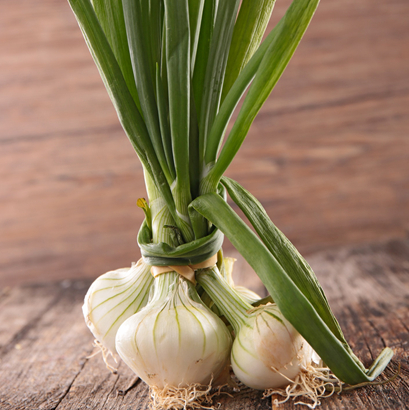
Background
Some people use squill for conditions such as asthma, patchy hair loss (alopecia areata), heart disease, and many others, but there is no good scientific evidence to support these uses. Using squill can also be unsafe and may lead to irregular heartbeat and other serious and life-threatening heart problems.
In manufacturing, squill is used in pest control as rat poison.
Safety Safety definitions
When applied to the skin: Squill is POSSIBLY SAFE when applied to the scalp as a 2% solution for 12 weeks or less.
Special Precautions & Warnings:
It is UNSAFE for anyone to take squill by mouth, but people with the following conditions have even more reasons not to use it:Pregnancy and breast-feeding: It's UNSAFE to take squill by mouth if you are pregnant. It might cause a miscarriage. It's also UNSAFE to take squill if you are breast-feeding.
Heart disease: Do not use squill if you have heart disease. It is unsafe and can cause serious adverse effects.
Low potassium levels: It's unsafe to use squill if you have this condition. Avoid use.
Stomach and bowel problems: Squill can irritate the stomach and intestines. Don't use it if you have any stomach or bowel conditions.
Effectiveness
- Patchy hair loss (alopecia areata). Early research shows that applying squill 2% solution to the scalp for 12 weeks might improves hair regrowth better than clobetasol 0.05% lotion.
- Asthma. Early research shows that taking a squill syrup might improve breathing by a small amount in people with moderate to severe asthma.
- Fluid retention (edema).
- Heart disease.
- Inducing vomiting.
- Irregular heartbeat (arrhythmia).
- Long-term swelling (inflammation) of the airways in the lungs (chronic bronchitis).
- Thinning mucus.
- Whooping cough.
- Other conditions.
Dosing & administration
Interactions with pharmaceuticals
Antibiotics (Macrolide antibiotics)
Interaction Rating=Moderate Be cautious with this combination.
Squill might affect the heart. Some antibiotics might increase how much squill the body absorbs. Taking squill along with some antibiotics might increase the effects and side effects of squill.
Some antibiotics called macrolide antibiotics include erythromycin, azithromycin, and clarithromycin.
Antibiotics (Tetracycline antibiotics)
Interaction Rating=Moderate Be cautious with this combination.
Squill might affect the heart. Some antibiotics might increase how much squill the body absorbs. Taking squill along with some antibiotics might increase the effects and side effects of squill.
Some tetracyclines include demeclocycline (Declomycin), minocycline (Minocin), and tetracycline (Achromycin).
Digoxin (Lanoxin)
Interaction Rating=Major Do not take this combination.
Digoxin (Lanoxin) helps the heart beat more strongly. Squill also seems to affect the heart. Taking squill along with digoxin can increase the effects of digoxin and increase the risk of side effects. Do not take squill if you are taking digoxin (Lanoxin) without talking to your healthcare professional.
Medications for inflammation (Corticosteroids)
Interaction Rating=Moderate Be cautious with this combination.
Squill might affect the heart. Some medications for inflammation can decrease potassium in the body. Low potassium levels can also affect the heart and increase the risk of side effects from squill.
Some medications for inflammation include dexamethasone (Decadron), hydrocortisone (Cortef), methylprednisolone (Medrol), prednisone (Deltasone), and others.
Quinine
Interaction Rating=Moderate Be cautious with this combination.
Squill can affect the heart. Quinine can also affect the heart. Taking quinine along with squill might cause serious heart problems.
Stimulant laxatives
Interaction Rating=Moderate Be cautious with this combination.
Squill can affect the heart. The heart uses potassium. Laxatives called stimulant laxatives can decrease potassium levels in the body. Low potassium levels can increase the risk of side effects from squill.
Some stimulant laxatives include bisacodyl (Correctol, Dulcolax), cascara, castor oil (Purge), senna (Senokot), and others.
Water pills (Diuretic drugs)
Interaction Rating=Moderate Be cautious with this combination.
Squill might affect the heart. "Water pills" can decrease potassium in the body. Low potassium levels can also affect the heart and increase the risk of side effects from squill.
Some "water pills" that can deplete potassium include chlorothiazide (Diuril), chlorthalidone (Thalitone), furosemide (Lasix), hydrochlorothiazide (HCTZ, HydroDiuril, Microzide), and others.
Interactions with herbs & supplements
Herbs that contain cardiac glycosides: Squill contains chemicals called cardiac glycosides, which affect the heart. Using squill with other herbs that also contain these chemicals might harm the heart. Avoid doing this. Other herbs that contain cardiac glycosides include black hellebore, Canadian hemp roots, digitalis leaf, hedge mustard, figwort, lily of the valley roots, motherwort, oleander, pheasant's eye plant, pleurisy root, strophanthus seeds, and uzara.
Horsetail: Squill contains chemicals called cardiac glycosides. There is a concern that using horsetail with cardiac glycoside-containing herbs, such as squill, increases the risk of heart damage due to the loss of too much potassium.
Licorice: Squill contains chemicals called cardiac glycosides. There is a concern that using licorice with cardiac glycoside-containing herbs, such as squill, increases the risk of heart damage due to the loss of too much potassium.
Stimulant laxative herbs: Squill contains chemicals called cardiac glycosides. There is a concern that using herbs that act like stimulant laxatives along with cardiac glycoside-containing herbs, such as squill, increases the risk of heart damage due to the loss of too much potassium. Stimulant laxative herbs include aloe, alder buckthorn, black root, blue flag, butternut bark, colocynth, European buckthorn, fo-ti, gamboge, gossypol, greater bindweed, jalap, manna, Mexican scammony root, rhubarb, senna, and yellow dock.




